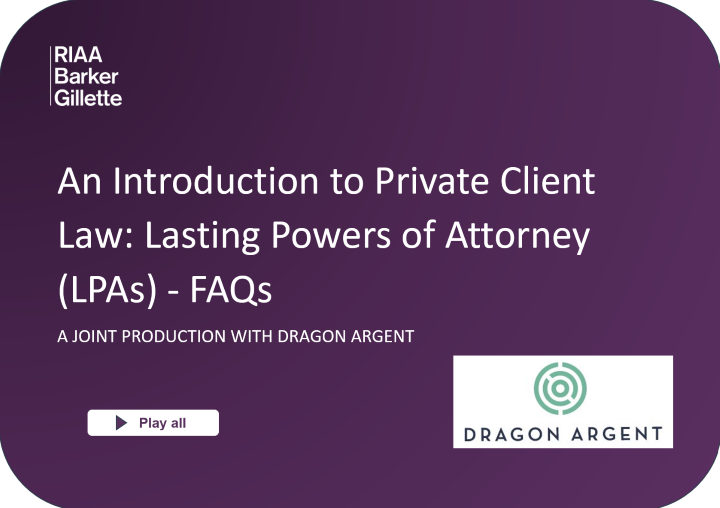Lasting Powers of Attorney FAQs
A power of attorney is a legal document that appoints someone – your attorney – to make decisions on your behalf.
There may be a time when you can no longer make or communicate your own decisions. Having a Lasting Power of Attorney in place can save considerable time and costs if the worst should happen – so it’s worth considering now.
Partner and Head of Private Client at RIAA Barker Gillette (UK), James McMullan, answers Cacy Neilson, of Dragon Argent‘s most popular questions on Lasting Powers of Attorney to empower you to make informed decisions about your future.
Why should we have an LPA in place?
Another good reason for having an LPA…
Are UK LPAs valid abroad?
At what point do your attorneys step in?
Business LPAs
Do you have to have an LPA in place with a will?
Does an attorney have to be a solicitor?
Enduring powers of attorney
Health & Welfare LPAs
How do I raise an objection to an LPA being registered?
How does a family member know that an LPA has been registered?
Preventing abuse
Replacement attorneys
Types of power of attorney
What obligations are there on attorneys under an LPA?
What options are available in the interim before an LPA is in place?
What types of LPA appointments are there?
When should I put an LPA in place?
Note: These FAQs are not legal advice; they provide information of general interest about Lasting Powers of Attorney.

